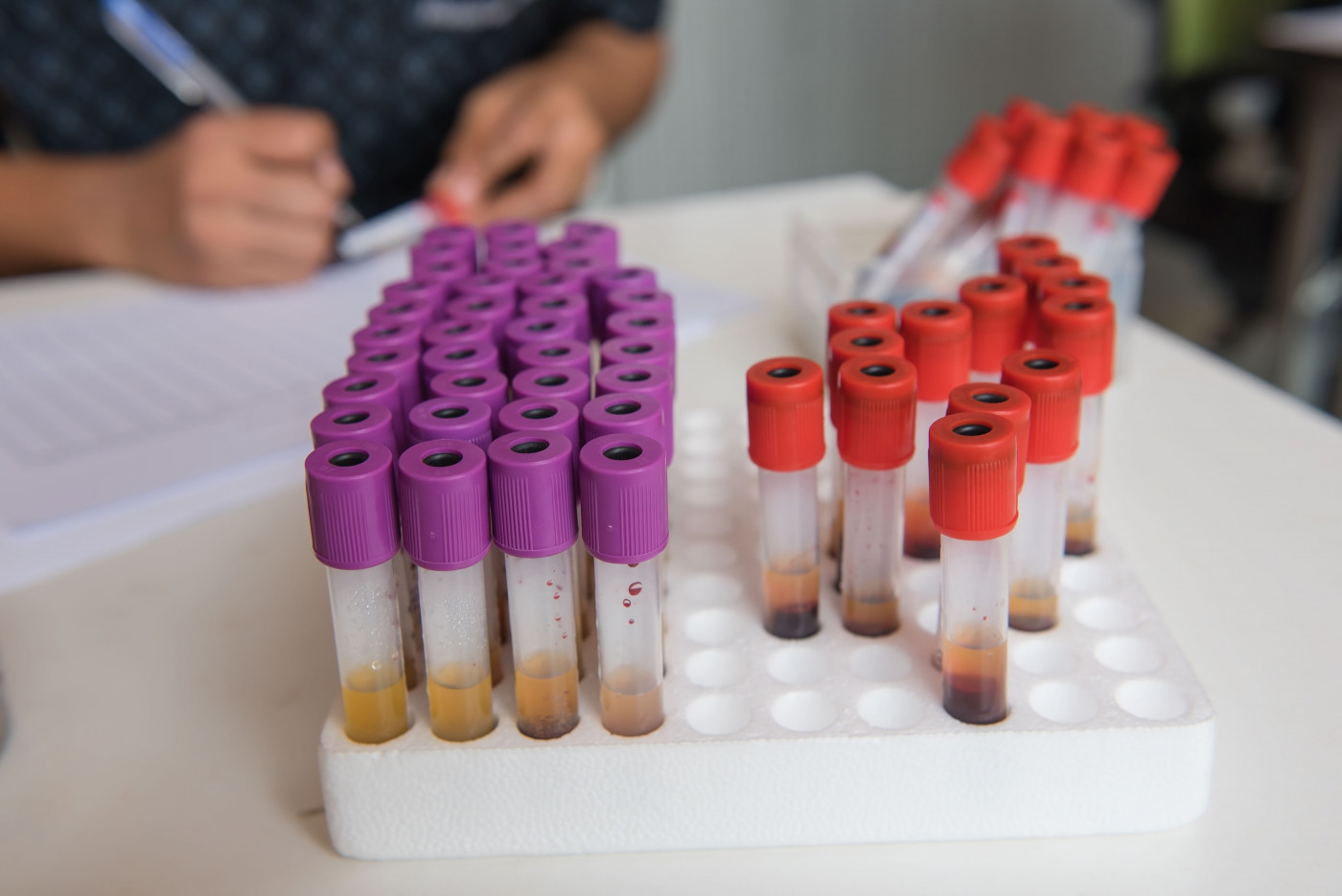2 Proteins Seen as Possible ALS Blood Biomarkers

Clusterin, a protein that plays a key role in motor neuron health, and ficolin-3, a protein essential for the activation of immune responses, may be promising biomarkers of amyotrophic lateral sclerosis (ALS), according to a recent study.
The study, “Levels of clusterin, CD5L, ficolin-3, and gelsolin inALS patients and controls,” was published in the journal Amyotrophic Lateral Sclerosis and Frontotemporal Degeneration.
Biomarkers that allow physicians to readily distinguish people with ALS from those who do not have the disease, or that can help in evaluating disease progression, are lacking.
While searching for new proteins that could be used as ALS biomarkers, researchers at the University of Queensland in Australia previously found a group of 30 proteins whose levels significantly differed between patients and healthy individuals.
Now, this same team zeroed in on four of these proteins — clusterin, CD5L, ficolin-3, and gelsolin — identified as top candidates in that study, with the goal of validating them as disease biomarkers in a second group of ALS patients and healthy people serving as a control group.
They collected blood samples from 37 ALS patients (27 men and 10 women) with a mean age of 61.4, and 30 controls (20 men and 10 women) with a mean age of 57.9. All were recruited from the Royal Brisbane Women’s Hospital to participate in the study.
Investigators used enzyme-linked immunosorbent assay (ELISA) — a common test that measures levels of targeted molecules using an enzymatic reaction — to determine the levels of all four proteins in these samples.
In accordance with their earlier work, the team again found that ALS patients had higher levels of ficolin-3 and lower levels of clusterin than did the control group.
But levels of the other proteins differed between these two studies — this one using ELISA and other mass spectrometry to analyze the blood samples.
CD5L levels were now found to be higher in patients, and to be associated with disease duration and survival. CD5L is a protein that regulates the synthesis of fat molecules, and plays an important role in inflammatory responses within the body.
Levels of gelsolin, a protein involved in the regulation of cellular architecture and motility (movement), were also seen to be slightly higher in ALS patients compared with controls. Previously, they were lower in patients, particularly those with cognitive problems, a patient group not included in this second validation study.
“One reason for this discrepancy is that ALS is a heterogeneous disease and that the two groups of patients were different,” the researchers wrote, adding that the different methodologies used could also contribute to data inconsistency.
More work is necessary, but as clusterin and ficolin-3 showed similar alterations in people with ALS under both methodologies, these proteins “are worth further evaluation as biomarkers in ALS,” they wrote.
Clusterin and ficolin-3 were not found to correlate with clinical features of ALS, “but a larger, longitudinal study would be needed to explore this,” they added.
“[W]e have confirmed that levels of clusterin are decreased and levels of ficolin-3 are increased in ALS compared to controls, and are worth further evaluation as biomarkers in ALS,” the researchers concluded.






